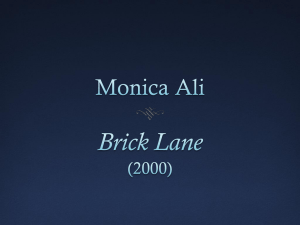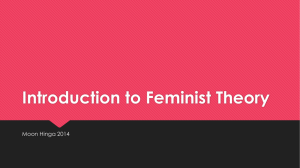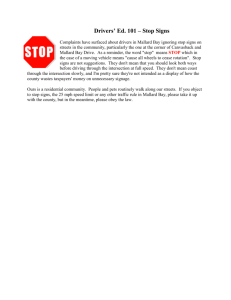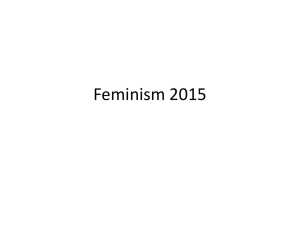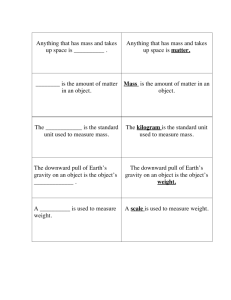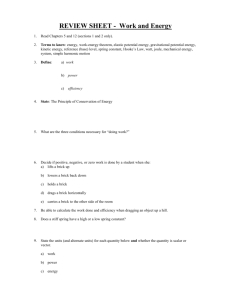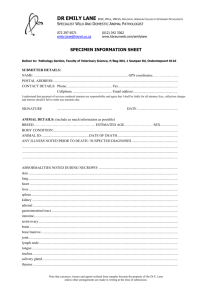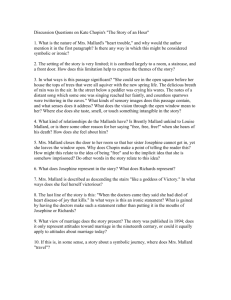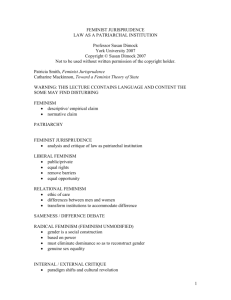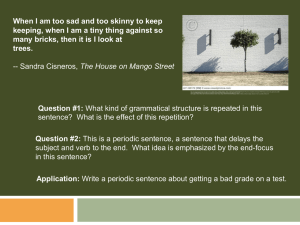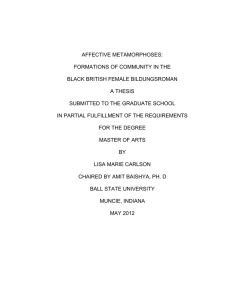Feminist Criticism Presentation (1)
advertisement
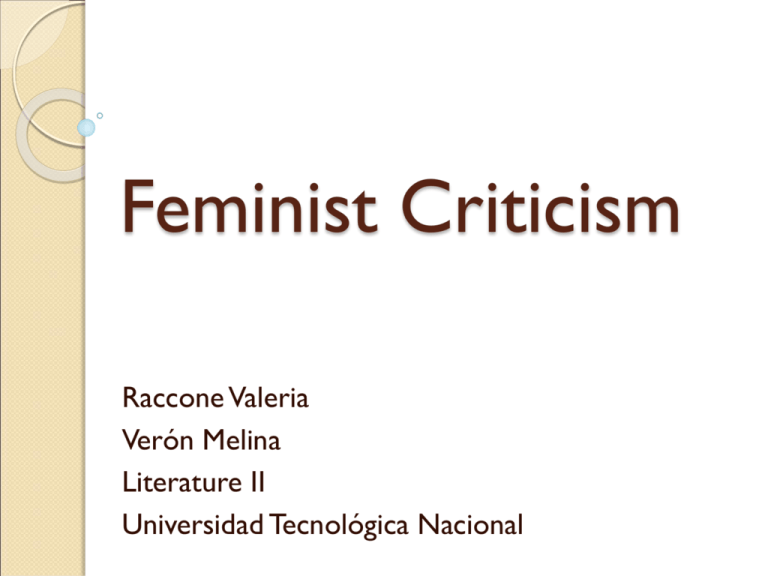
Feminist Criticism Raccone Valeria Verón Melina Literature II Universidad Tecnológica Nacional Definition “Feminist criticism examines the ways in which literature (and other cultural productions) reinforce or undermine the economic, political, social, and psychological oppression of women.” (Tyson 81) Traditional Gender Roles What is patriarchy? It “can be defined as any culture that privileges men by promoting traditional gender roles.” (83) It is present in different aspects of life Expressing feelings: - Anger - Sympathy Programming education Diagnosing illnesses It is also present in traditional stories Feminist Assumptions Women are oppressed by patriarchy. Woman is other. All of Western civilization is rooted in patriarchal ideology. Gender is determined by culture. Gender equality is promoted. Gender is present in every aspect of human life. (Tyson 90) Feminism and Literature Pay attention to: - Patriarchal ideology present. Is it reinforced? Or undermined? The way in which women are portrayed. Cultural factors present, such as race, and class. Women’s situations in the world Feminism, Gender Issues and Literature Feminism and the issue of gender stereotypes There is a system that encourages men and women to take different roles in mixed company: Men: active, productive, assertive Women: passive, receptive, inquiring. Masculine Feminine Feeling Thinking Compliant Aggressive Liking a network that disperses Liking a hierarchy that authority establishes authority Oriented to touch Oriented to sight Open Closed Emotional Rational Going into the world to work Maintaining a home, nurturing Allowing for different truths Seeking a single truth Listening Speaking Being passive or taking weak Taking strong action action The unconscious, dreams, The conscious mind fantasies (Bonnycastle 201) Things have changed Essentialism: there is some essence to being a woman and her fullfilment is achieved by accomplishing that essence. Anti-essentialism: these essences are fictions created by the society. Since 1960, in the Western world… more women have had a paid job women have enrolled in higher education discrimination based on sex has decreased in some professions women’s issues have become a matter of identity politics women’s movement have generated new awareness on the part of men Queer Theory “advocates dissolving the clear boundaries between male and female, and between straight and gay, because these categories are sources of stereotypes and oppression.” (Bonnycastle 206) establishes that all identities are constructed, approximate and unstable. Literary criticism based on queer theory can help free us from the assumptions of our culture about what is natural, and so it often undermines what we accept as natural or realistic in fiction. Gender stereotypes and literary criticism Literature seems to bear a heavy imprint of patriarchal culture. The English language is sexist and it conveys the implication that men are central and women marginalized. Commentary by men on a dominantly male canon reflects patriarchal concerns. Dealing with gender issues in individual works of literature Whose experience is rendered most fully and faithfully? How does the author present the society and its ideology? How is the reader constructed? Whose desires and fantasies drive the novel? Maya Angelou • • • • She was born in 1928 She is a poet, memoirist, novelist, educator, dramatist, producer, actress, historian, filmmaker, and civil rights activist. She is considered a spokesperson of the Black people and women Her common themes: racism, identity, family, and travel. “Phenomenal Woman” Kamala das She was born in 1934. She died in 2009 She was an “Indian poet, memoirist and short-story writer whose work was known for its open discussion of women’s sexual lives.” (Daily News) She wrote in English and Malayalam, a non-Indo European language spoken in the South Indian state of Kerala. “An Introduction” • Included in Summer in Calcutta Kate Chopin She was born in 1850. She died in 1904. She was an American author. Her fiction “focuses on the lives of sensitive, intelligent women.” “The Awakening (1899) was condemned. It was called morbid, vulgar, and disagreeable.” (Katechopin.org) “The Story of an Hour” Setting: - The Mallards’ house - 19th Century Characters: - Mrs Mallard - Josephine - Richards - Brently Mallard Plot: A woman who suffers from a heart trouble, Mrs Mallard, is told that her husband died in an accident. Although she feels sad for a moment, she is joyful since she would be free. Narrator: Third person Omniscient Themes: - Joy - Death - Patriarchy Symbol: - The open window Climax: when Brently Mallard gets home. Quotes About Mrs Mallard “free, free, free!” (184) “She would live for herself” (184) “Free! Body and soul free!” (185) “…she was drinking in a very elixir of life through that open window.” (185) “Brick Lane” A film adapted from the novel “Brick Lane” by Monica Ali. Setting: - London, Brick Lane - 2001 Characters: - Nazneen Ahmed - Chanu Ahmed - Karim - Rukshana 'Shahna' Ahmed - Bibi Ahmed Plot: A Bangladeshi girl named Nazneen, who moves to London, leaving behind her sister and home, for an arranged marriage. In London, they live in a small flat on Brick Lane and have two daughters. Meanwhile, her sister, Hasina, sends her letters telling of her carefree life back in Bangladesh. When her husband, Chanu, loses his job, Nazneen takes up sewing and meets Karim, a young man who supplies her dress material, and whom she feels attracted to. After the events of September 11, 2001, racism increases in the community and Chanu considers going back home. Nazneen must now chose between staying on Brick Lane and continuing her affair with Karim or accompanying her husband back home. Themes: - Racism - Traditional men and women’s roles - Patriarchy - Freedom trough language Works Cited Angelou, Maya. Global Renaissance Woman. Mayaangelou.com. 2013. Web. 26 Feb 2013. Angelou, Maya. “Phenomenal Woman.” Random House, 2000. Print. Bonnycastle, Stephen. "Feminism, Gender Issues, and Literature". In Search of Authority: An Introductory Guide to Literary Theory. 3thed. Peterborough,Ontario: Broadview Press. 2007. Print. Brick Lane. Dir. Sarah Gavron. FilmFour and Ruby Films. 2007 Chopin, Kate. “The Story of an Hour”. 1894. Print Daily News “Being consistently inconsistent”. January, 2011. www.dailynews.lk Das, Kamala. “An Introduction.”Summer in Calcutta. 1965. Print. Katechopin.org. " The Kate Chopin International Society”. 2013. Web. www.katechopin.org Tyson,Lois. “Critical Theory Today: A User-Friendly Guide”. 2nd Edition. New York and London: Routledge. 2006. Print
